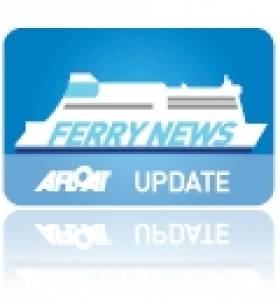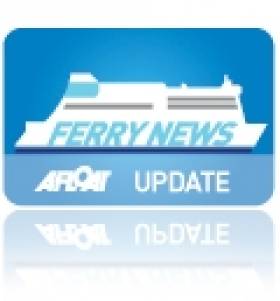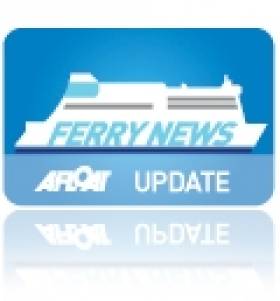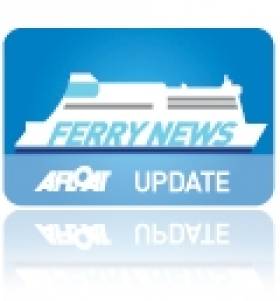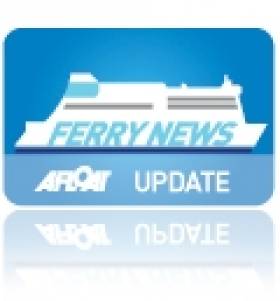Displaying items by tag: Cancelled Sailings
Severe Weather Disrupts Sailings and for Christmas Eve
#CancelledSailings - As storms force winds and gales continue to disrupt Christmas travel plans, some Irish Sea ferry sailings are cancelled today and on Christmas Eve.
To confirm the latest sailing updates it is advisable to visit the following ferry operator websites by clicking: Irish Ferries Stena Line Isle of Man Steam Packet Company
Travellers can also consult further sailing information and other operators contact details on the AA's ferrywatch page.
Bad Weather Continues to Disrupt Christmas Sailings
#CancelledSailings - As storms force winds and gales continue to batter the coast, some ferry sailings have been cancelled on the Irish Sea.
Travellers are advised to check for updates on the latest sailing information from operator websites, in addition to visiting the AA's ferrywatch.
Despite the efforts of ferry operators to increase additional capacity on the central coridoor routes in the run-up to the festive period, adverse weather conditions have won out, particularly on Irish Ferries services on the Dublin Port-Holyhead route.
Stena Line managed to carry out HSS fast-craft crossings earlier today, with a scheduled round-trip completed between Holyhead and Dun Laoghaire Harbour. The return of the HSS today marked the start of the festive season schedule with sailings operating on selected dates this month and early into the New Year.
High Seas and Cancelled Ferry Sailings
#CancelledSailings - Due to adverse weather conditions, some ferry sailings across the Irish Sea have been cancelled today and some crossings tomorrow remain in doubt.
As previously reported on Afloat.ie, Irish Ferries new chartered ro-pax ferry 'Epsilon' which was due to debut on the Dublin-Holyhead route yesterday, had to cancel sailings due to operational reasons.
In addition fast-craft Dublin-Holyhead sailings operated by Jonathan Swift today have also been cancelled.
All passengers travelling with Irish Ferries will be accommodated alternatively on the cruiseferry Ulysses, for further details, visit the company's website here, noting status of sailings schedule for tomorrow (Thursday) are also updated.
For the most up to date information on all sailings times of ferry operators and how to contact them directly, the AA provides an updated live service.
Bad Weather Leads to Cancelled Ferry Sailings
#CancelledSailings - Due to adverse weather conditions, some ferry sailings across the Irish Sea have been cancelled.
For the most up to date information on sailings times of ferry operators and how to contact them directly, the AA provides an updated live service.
Bad Weather Disrupts Ferry Sailings
#FerrySailings - The recent bad weather across the Irish Sea and beyond has led to cancellations on some ferry services. For the latest ferry sailing information for today Thursday 18 April, consult the list of operators below.
IRISH FERRIES
* Due to adverse weather forecasts for the Irish Sea, the following Jonathan Swift Fast Craft ferry sailings for Thursday 18th April have either been cancelled or are in doubt:
Dublin - Holyhead 0845hrs and 1430hrs
Holyhead - Dublin 1150hrs and 1715hrs
All passengers can be accommodated on the Ulysses cruise ferry.
* All other Irish Ferries sailings are expected to sail to schedule.
* For further information please contact Irish Ferries on 0818300400 or 016075519.
STENA LINE
* All Stena Line sailings are expected to depart on time.
* For more information on Stena Line sailings call 003531 204 77 99 when travelling to Britain or 0044 (0) 8705 755 755 when travelling to Ireland or Scotland.
CELTIC LINK FERRIES
For information contact Celtic Link ferries on the following 00353 (53) 9162688
P&O FERRIES
* From Sunday 14th April, additional motorist sailings will operate on the Dublin – Liverpool route at 0900hrs ex Dublin and 0930hrs ex Liverpool.
* There are a number of amendments on the Dublin – Liverpool route during until late May.
* During this period, motorist sailings on the route will operate as follows :-
Ex Dublin 2130 hrs 7 nights a week.
Ex Dublin 0915 hrs Tues – Sat.
Ex Liverpool 2100 hrs 7 nights a week.
Ex Liverpool 0930 hrs Tues – Sat.
The 1500 ex Dublin (Mon – Fri), 1600 Sun and
0300 ex Liverpool (Mon – Sat) will operate at this time as FREIGHT ONLY sailings.
For further info Tel (01) 4073434 or www.poferries.com
For further updates click the AA's Roadwatch Ferry Information link by clicking HERE


























